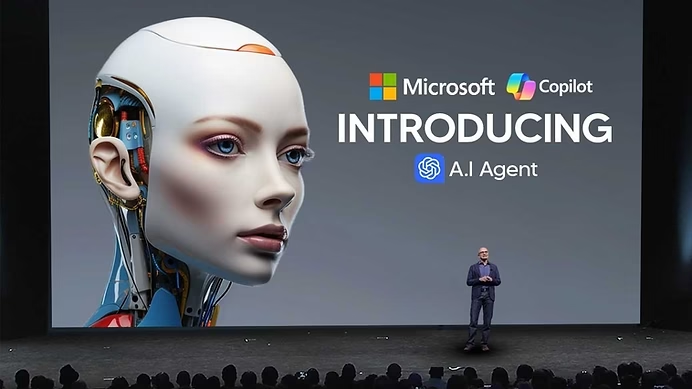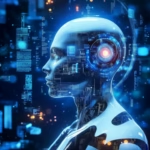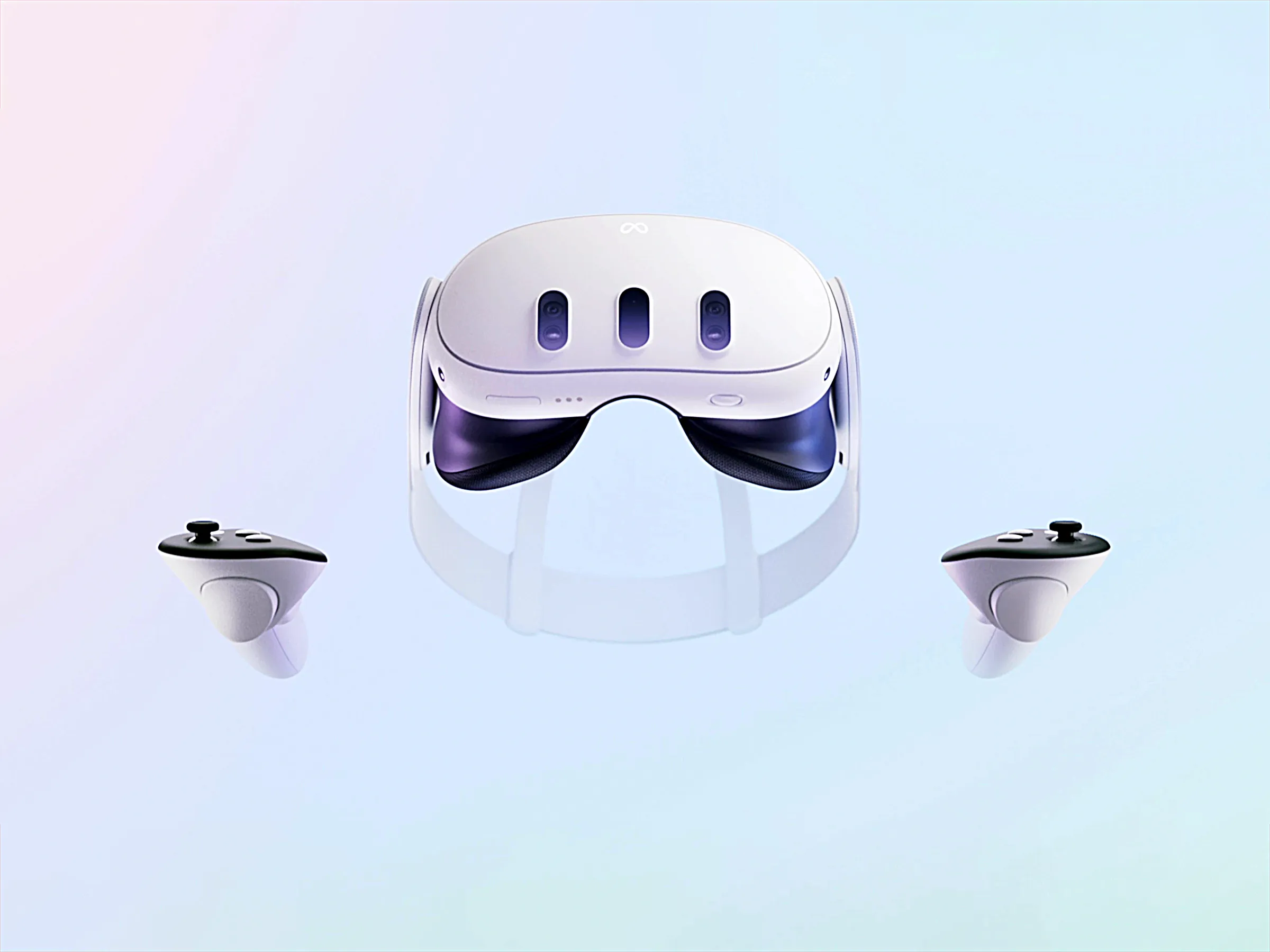Decoding Microsoft AI Agent News 2025: Breakthroughs, Impact of AI Agents on Business, and the Future of AI Agents in Work
Estimated reading time: 18 minutes
Key Takeaways
- AI agents are evolving rapidly, moving beyond simple automation to become autonomous, goal-oriented entities in the digital workplace.
- The latest breakthroughs in AI agents include enhanced reasoning, multi-modal understanding, multi-agent collaboration, longer context windows, and robust security features like unique agent identities.
- Microsoft AI Agent News 2025, particularly from Build 2025, highlights the deep integration of agents into Windows, Azure, and Copilot products, alongside a vision for an open agentic web.
- The impact of AI agents on business is profound, promising significant gains in efficiency, productivity, and decision-making through the automation of complex workflows, while also posing challenges related to security, implementation, and workforce adaptation.
- The future of AI agents in work envisions human-agent collaboration becoming commonplace, shifting human roles towards higher-level strategic tasks and oversight, and potentially leading to exponential growth in the number of business-critical agents.
Table of contents
- Decoding Microsoft AI Agent News 2025: Breakthroughs, Impact of AI Agents on Business, and the Future of AI Agents in Work
- Key Takeaways
- Understanding AI Agents
- Latest Breakthroughs in AI Agents
- Microsoft’s Vision and News (Focusing on 2025)
- Impact of AI Agents on Business
- The Future of AI Agents in Work
- Conclusion
- Frequently Asked Questions
In the rapidly evolving digital landscape, the rise of AI agents is not just a trend, but a fundamental shift. These intelligent entities are rapidly becoming the backbone of modern digital workplaces, with excitement surging as their capabilities expand beyond simple automation to perform complex, multi-step tasks autonomously. They represent a profound transformation in how work is done, promising unprecedented levels of efficiency and innovation across industries. The year 2025 is particularly significant, marked by key announcements and product rollouts that are solidifying the position of AI agents as essential components of enterprise technology stacks. This post delves into the latest breakthroughs in AI agents, provides a detailed look at the crucial microsoft ai agent news 2025, examines the significant impact of ai agents on business, and looks ahead to the compelling future of ai agents in work. Our goal is to educate readers on this transformative technology, offering insights derived from recent developments and expert analysis to help businesses and professionals navigate this exciting new era.

Understanding AI Agents
To appreciate the scope of recent developments, it’s crucial to first grasp the core concept: what are autonomous ai agents? In essence, they are sophisticated digital entities designed to act independently to achieve specific goals, much like a human agent pursuing objectives. Unlike simpler automation scripts or chatbots that perform predefined actions based on direct commands, AI agents possess a degree of autonomy.

Their core functions revolve around utilizing advanced reasoning, interacting dynamically with their digital environment (like software applications, databases, and networks), and employing sophisticated problem-solving skills. They can interpret complex requests, break them down into smaller steps, execute those steps, and adjust their plan based on real-time feedback or changes in their environment.
The key differentiator lies in their goal-oriented nature and adaptability. Unlike basic AI tools, which may simply respond to commands or automate routine tasks, autonomous agents are designed to pursue higher-level objectives. They can make decisions, adapt their actions based on dynamic inputs and feedback (source: https://www.infoq.com/news/2025/05/microsoft-build-2025/, source: https://www.reworked.co/digital-workplace/microsoft-build-2025-microsoft-pins-its-future-on-ai-agents/). Think of a simple tool as a hammer – it does one thing well when directed. An AI agent is more like a skilled contractor – given a blueprint (goal), they gather tools, plan the work, execute, and handle unexpected issues that arise during construction. This capability allows them to tackle more ambiguous, multi-step processes that traditionally required human oversight and intervention at every turn. They are, in essence, forming the foundation of a more intelligent, responsive, and dynamic digital workforce capable of operating with minimal human supervision once their goals are defined.
Latest Breakthroughs in AI Agents
The rapid evolution of AI has paved the way for significant advancements that define the latest breakthroughs in AI agents. These aren’t just incremental improvements; they represent fundamental shifts in capability that are transforming what these digital entities can achieve. Recent research and development efforts have focused on making agents more perceptive, more collaborative, and more reliable.

Key capabilities emerging based on cutting-edge research include:
- Multi-modal capabilities: Modern agents are no longer limited to processing just text. They can now understand and interact with a variety of data types simultaneously, including text documents, images, structured data, and even audio. This allows them to interpret complex scenarios involving different forms of information, such as analyzing a report containing text, charts, and diagrams.
- Improved reasoning and collaboration: A major leap is the ability of agents to perform complex reasoning tasks and, critically, to collaborate effectively with other agents or human users. This means agents can work together to solve intricate, multi-step tasks that are beyond the scope of a single agent (source: https://www.reworked.co/digital-workplace/microsoft-build-2025-microsoft-pins-its-future-on-ai-agents/). They can divide labor, share information, and coordinate actions towards a common objective, mirroring how human teams operate.
- Longer context windows: Underlying large language models (LLMs) now support significantly longer context windows. This enables agents to remember and act on much more information from previous interactions or documents over extended periods. This sustained memory is vital for handling complex, multi-turn processes or working with large datasets without losing track of the overall goal or relevant details.
- Multi-agent orchestration: The ability to deploy and manage multiple specialized agents working in concert is becoming a reality. Platforms like Microsoft’s Copilot Studio and Azure AI Foundry are designed to enable this seamless teamwork among specialized agents. Imagine an HR agent handling onboarding paperwork, collaborating with an IT agent setting up user accounts, and a marketing agent coordinating welcome campaigns – all orchestrated to ensure a smooth and efficient new employee experience (source: https://www.reworked.co/digital-workplace/microsoft-build-2025-microsoft-pins-its-future-on-ai-agents/, source: https://www.infoq.com/news/2025/05/microsoft-build-2025/). This orchestration is key to automating complex, cross-functional business processes.
- Security and identity management: As agents become more integrated into critical systems, robust security and identity management are paramount. Microsoft Entra Agent ID provides unique, auditable identities for every agent, ensuring controlled access to resources and significantly improving data protection and compliance. This provides the necessary trust layer for agents to handle sensitive information and perform actions within secure environments (source: https://azure.microsoft.com/en-us/blog/all-the-azure-news-you-dont-want-to-miss-from-microsoft-build-2025/, source: https://www.reworked.co/digital-workplace/microsoft-build-2025-microsoft-pins-its-future-on-ai-agents/). The integration with systems like Purview for data classification further strengthens this security posture.
These advancements demonstrate that AI agents are quickly maturing into powerful, reliable digital collaborators capable of handling increasingly complex and sensitive tasks, setting the stage for their widespread adoption.
Microsoft’s Vision and News (Focusing on 2025)
Microsoft has emerged as a leading force in the AI agent space, and microsoft ai agent news 2025 has been particularly impactful, highlighting the company’s deep commitment and significant progress. Microsoft Build 2025 was, undoubtedly, a landmark event for AI agents, serving as a platform to unveil key innovations and strategic directions.

Key highlights and developments announced at Build 2025 include:
- Copilot evolution: Microsoft’s various Copilot offerings are rapidly transforming into sophisticated autonomous agents. A prime example is GitHub Copilot, which is evolving beyond a coding assistant to become an autonomous coding agent. It is increasingly capable of handling complex issues end-to-end, from identifying problems in code repositories to generating pull requests, implementing fixes, and revising code independently based on project requirements and feedback (source: https://www.infoq.com/news/2025/05/microsoft-build-2025/, source: https://azure.microsoft.com/en-us/blog/all-the-azure-news-you-dont-want-to-miss-from-microsoft-build-2025/). This shift empowers developers to delegate significant coding tasks, freeing up time for higher-level design and innovation.
- Windows integration: A crucial step towards pervasive AI agents is their seamless integration into the operating system. Windows 11 now natively supports the Model Context Protocol (developed by Anthropic), enabling AI agents to interact directly and natively with applications and services running on the desktop environment. This level of integration allows agents to perform actions like drafting emails, managing calendar events, interacting with documents, or controlling applications without complex workarounds. Furthermore, the introduction of Windows AI Foundry enables local AI model processing on compatible hardware, boosting speed, efficiency, and crucial privacy for sensitive tasks (source: https://www.infoq.infoq.com/news/2025/05/microsoft-build-2025/).
- Azure advancements: The backbone for enterprise AI agent deployment is Azure. The Azure AI Foundry Agent Service reaching general availability is a significant milestone, empowering businesses to build, deploy, and manage fleets of autonomous agents to automate complex, end-to-end processes at scale. New features like robust Cosmos DB integration facilitate the management of large volumes of unstructured data that agents often need to process, while new model routers help optimize agent performance by selecting the best underlying AI model for a specific task based on quality, cost, and speed criteria (source: https://azure.microsoft.com/en-us/blog/all-the-azure-news-you-dont-want-to-miss-from-microsoft-build-2025/).
- Identity and security: Recognizing the critical need for trust and security in an agent-driven world, Microsoft is embedding robust identity and data protection measures. Microsoft Entra Agent ID assigns unique identities to agents, allowing administrators to track their actions, manage their permissions, and ensure accountability. This is complemented by the planned extension of Purview Information Protection to agents, which will soon allow agents to automatically classify and protect sensitive data they interact with, ensuring compliance and mitigating risks (source: https://azure.microsoft.com/en-us/blog/all-the-azure-news-you-dont-want-to-miss-from-microsoft-build-2025/, source: https://www.reworked.co/digital-workplace/microsoft-build-2025-microsoft-pins-its-future-on-ai-agents/).
- Agentic web vision: Perhaps the most ambitious aspect of Microsoft’s 2025 announcements is the vision for building an open, interoperable ecosystem for agents – the “open agentic web.” This envisions a future where agents can function independently not just within a single application or platform, but seamlessly across different services, websites, and applications from various providers. This requires open standards, protocols, and security layers to allow agents to discover services, interact securely, and achieve goals that span the entire digital world. CEO Satya Nadella describes this as ushering in the “age of AI agents and the open agentic web” (source: https://blogs.microsoft.com/blog/2025/05/19/microsoft-build-2025-the-age-of-ai-agents-and-building-the-open-agentic-web/, source: https://www.reworked.co/digital-workplace/microsoft-build-2025-microsoft-pins-its-future-on-ai-agents/). This grand vision suggests a future where agents become the primary interface for interacting with the digital world, automating complex workflows that currently require manual navigation across multiple tools and websites.

These announcements from Microsoft in 2025 underscore the company’s strategic focus on AI agents as the next major platform shift, providing both the foundational infrastructure and integrated products to enable businesses to build and leverage these powerful tools.
Impact of AI Agents on Business
The emergence of capable, autonomous AI agents has a truly transformative impact of ai agents on business operations, promising to reshape workflows, boost productivity, and enable entirely new ways of working. Organizations are beginning to explore how these digital entities can be deployed to tackle tasks previously only performable by humans or requiring significant human oversight.

Let’s explore some of the potential benefits that businesses can anticipate:
- Automation of complex tasks: AI agents excel at automating multi-step processes that require interaction with various systems and dynamic decision-making. This extends far beyond simple data entry or rote tasks. Agents can handle everything from automating employee onboarding workflows (interacting with HR, IT, and training systems) to troubleshooting technical issues, performing detailed code reviews, analyzing vast datasets for insights, and even managing aspects of supply chains (source: https://www.reworked.co/digital-workplace/microsoft-build-2025-microsoft-pins-its-future-on-ai-agents/, source: https://news.microsoft.com/source/features/ai/meet-4-developers-leading-the-way-with-ai-agents/).
- Increased efficiency and productivity: By offloading routine, time-consuming, or complex tasks to AI agents, human employees are freed up to focus on higher-value, creative, strategic, and interpersonal work that requires uniquely human skills. This reallocation of effort leads to significant increases in overall organizational efficiency and individual productivity. Agents can work 24/7 without fatigue, processing information and executing tasks at speeds far exceeding human capabilities (https://www.penbrief.com/10-game-changing-ai-powered-productivity-apps/).
- Improved decision-making: AI agents can be equipped to gather, analyze, and synthesize vast amounts of real-time data from disparate sources. Leveraging their reasoning capabilities, they can identify trends, spot anomalies, and generate data-driven insights at speed. This allows them to recommend or even implement business decisions based on the most current and comprehensive information available, leading to more agile and effective strategic moves.
- New business models: The ability to deploy fleets of specialized agents tailored to specific needs opens up possibilities for entirely new business models. Companies can offer services powered by these agents, creating highly automated, scalable, and personalized offerings. For example, a marketing agency could use a team of agents to manage complex, multi-channel campaigns autonomously, or a customer support department could deploy agents capable of resolving a wider range of issues independently.

However, the transition to an agent-augmented workplace is not without its challenges. Businesses must carefully consider factors such as initial implementation costs for the necessary infrastructure and platforms (like Azure AI Foundry), potential security risks associated with granting agents access to sensitive data, the significant need for workforce adaptation through retraining and skill development, and crucial ethical concerns. These ethical considerations include ensuring privacy is protected, maintaining transparency in agent actions, preventing bias, and addressing the potential for job displacement as agents take on more tasks traditionally performed by humans (https://penbrief.com/critical-ai-challenges-tech-2025, source: https://www.reworked.co/digital-workplace/microsoft-build-2025-microsoft-pins-its-future-on-ai-agents/). Successful adoption requires not just technological implementation, but also careful strategic planning, change management, and the establishment of ethical guidelines.

Industry-specific examples illustrate the breadth of potential applications. In healthcare, agents could automate administrative tasks like scheduling, claims processing, or synthesizing patient records, freeing up medical staff for patient care (https://www.penbrief.com/unstoppable-ai-fraud-detection-finance-revolution/). For developers, advanced agents like GitHub Copilot are transforming productivity by handling coding, testing, and deployment tasks (source: https://blogs.microsoft.com/blog/2025/05/19/microsoft-build-2025-the-age-of-ai-agents-and-building-the-open-agentic-web/). In enterprise IT, multi-agent orchestration can streamline complex processes like provisioning new employees with access to all necessary systems and tools automatically (source: https://azure.microsoft.com/en-us/blog/all-the-azure-news-you-dont-want-to-miss-from-microsoft-build-2025/, source: https://www.reworked.co/digital-workplace/microsoft-build-2025-microsoft-pins-its-future-on-ai-agents/). The impact of ai agents on business is broad and deep, affecting nearly every function and industry.
The Future of AI Agents in Work
Looking beyond the immediate developments of 2025, the future of ai agents in work promises an even more integrated and transformative relationship between humans and artificial intelligence. As agents become more capable and autonomous, they will inevitably change roles and responsibilities within organizations.

A central theme in this future is the concept of human-agent collaboration. Rather than viewing agents solely as tools or replacements, the vision is for them to become true “digital coworkers,” handling not only routine and repetitive tasks but also assisting with complex problem-solving and strategic execution (source: https://www.reworked.co/digital-workplace/microsoft-build-2025-microsoft-pins-its-future-on-ai-agents/). Imagine a marketing team where agents generate initial campaign drafts, analyze performance data, and manage ad bids autonomously, while human marketers focus on creative strategy, brand messaging, and high-level decision-making. Or a financial analyst who works alongside an agent capable of automatically pulling data from dozens of sources, performing initial calculations, and highlighting key trends, allowing the human to concentrate on interpreting complex market dynamics and providing strategic recommendations.

The long-term implications suggest a significant shift in the human workforce. Employees will move away from execution-focused tasks towards oversight, strategy, critical thinking, and creative problem-solving – areas where human intuition, empathy, and complex judgment remain indispensable. Meanwhile, AI agents will manage the day-to-day execution and operational details, scaling operations with unprecedented efficiency and enabling organizations to innovate at a much faster pace. This doesn’t necessarily mean fewer jobs, but a fundamental change in the nature of those jobs, requiring a significant focus on upskilling and reskilling the workforce.
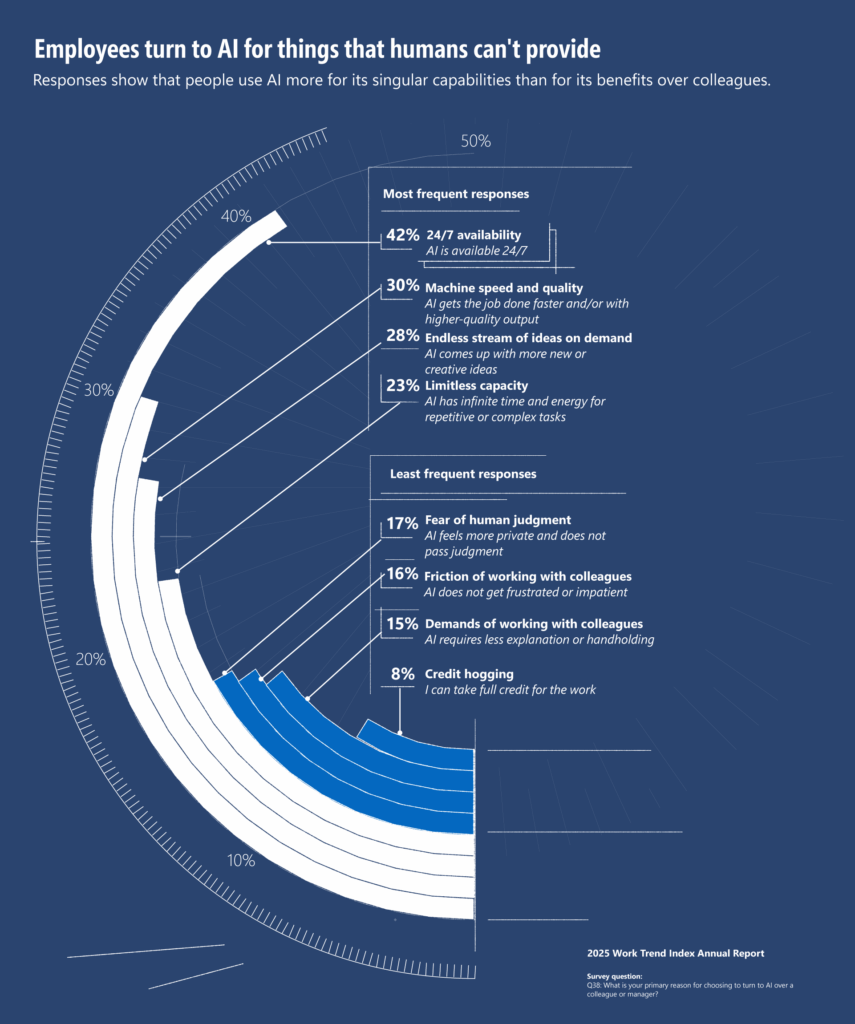
Predicting future trends beyond 2025, Microsoft itself projects exponential growth in the deployment of agents, forecasting potentially 1.3 billion AI agents operating in business by 2028 (source: https://www.reworked.co/digital-workplace/microsoft-build-2025-microsoft-pins-its-future-on-ai-agents/). This projection underscores the anticipated widespread adoption and integration of agents across all facets of business.

Furthermore, the realization of the “open agentic web” will be a game-changer. This ecosystem will enable seamless, cross-platform agentic workflows, allowing agents to interact fluidly across different company boundaries, software applications, and online services without manual bridges or integrations. This will further blur the line between human and digital intelligence, enabling highly sophisticated, automated processes that span entire value chains and redefine how businesses interact with each other and with customers. The future of work will be characterized by humans and a multitude of specialized AI agents collaborating within a highly interconnected digital environment.
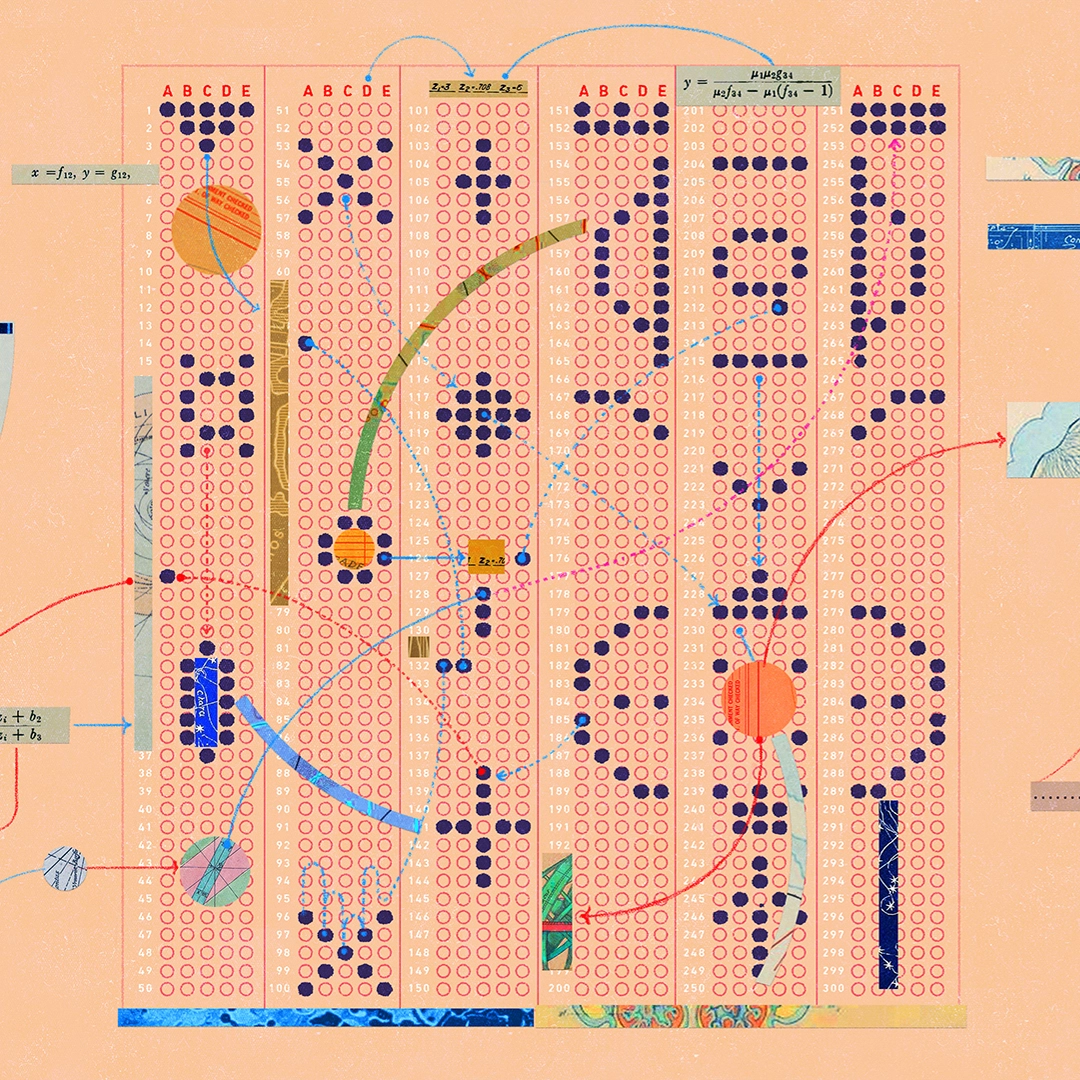
Conclusion
In summary, our exploration has covered the foundational understanding of what are autonomous ai agents – goal-oriented digital entities capable of independent action. We’ve delved into the latest breakthroughs in AI agents, noting advancements in multi-modality, reasoning, collaboration, context handling, and crucial security features. A significant portion of our focus was on the pivotal microsoft ai agent news 2025, particularly the comprehensive announcements from Build 2025 detailing deep integrations into Microsoft’s ecosystem and the ambitious vision for an open agentic web. We then examined the transformative impact of ai agents on business, highlighting their potential to automate complex tasks, dramatically increase efficiency, improve decision-making, and even enable new business models, while acknowledging the vital challenges that must be addressed. Finally, we looked ahead to the evolving future of ai agents in work, anticipating a landscape defined by close human-agent collaboration and a fundamental shift in professional roles as agents become ubiquitous digital partners. The transformative potential of AI agents is clear, presenting both immense opportunities and significant considerations for businesses and professionals aiming to thrive in the modern digital era (source: https://blogs.microsoft.com/blog/2025/05/19/microsoft-build-2025-the-age-of-ai-agents-and-building-the-open-agentic-web/, source: https://www.reworked.co/digital-workplace/microsoft-build-2025-microsoft-pins-its-future-on-ai-agents/, source: https://azure.microsoft.com/en-us/blog/all-the-azure-news-you-dont-want-to-miss-from-microsoft-build-2025/).

Frequently Asked Questions
- What is the primary difference between an AI agent and simpler AI tools like chatbots?
While simpler AI tools like chatbots primarily respond to predefined commands or queries within a limited scope, AI agents are goal-oriented and autonomous. They can understand complex objectives, devise multi-step plans, interact dynamically with their environment (like different software applications), make decisions independently, and adapt their actions based on real-time feedback to achieve their goals without continuous human input.
- What were the most significant announcements from Microsoft Build 2025 regarding AI agents?
Key announcements included the evolution of Copilot into more autonomous agents (e.g., GitHub Copilot becoming a coding agent), deep integration of agents into Windows 11 via the Model Context Protocol and Windows AI Foundry, the general availability of Azure AI Foundry Agent Service for enterprise deployment, robust security features like Microsoft Entra Agent ID and Purview integration for agents, and the strategic vision for building an open agentic web enabling cross-platform agent workflows.
- How do AI agents impact business efficiency and productivity?
AI agents significantly boost efficiency and productivity by automating complex, time-consuming, and multi-step tasks across various business functions. This frees up human employees to focus on higher-value activities requiring creativity, strategy, and critical thinking. Agents can process information and execute tasks continuously and at speeds impossible for humans, leading to faster turnaround times and increased throughput.
- What are the main challenges businesses face when implementing AI agents?
Challenges include the initial costs and technical complexity of implementing the necessary infrastructure and platforms, ensuring robust security and privacy protocols when agents handle sensitive data, adapting the existing workforce through training and reskilling programs, and navigating ethical considerations such as transparency, bias prevention, and the potential impact on job roles.
- What does the “future of work” look like with widespread AI agent adoption?
The future of work is likely to involve extensive human-agent collaboration, where agents act as digital partners handling execution and operational tasks. Human roles will shift towards oversight, strategic planning, creative problem-solving, and managing the agent ecosystem. The vision of an open agentic web suggests seamless interaction between agents across platforms, enabling highly automated, end-to-end workflows that redefine business processes and accelerate innovation.


